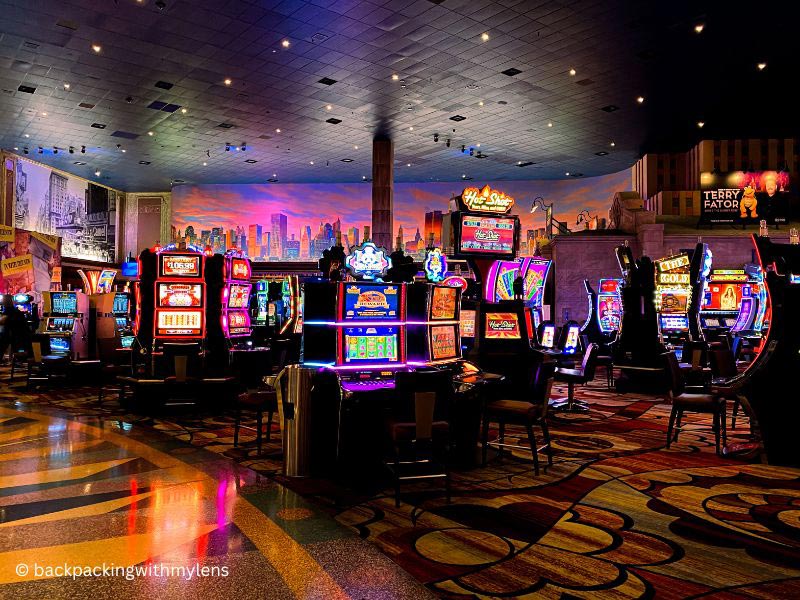
Gambling games have enthralled players throughout history, progressing from easy diversions to sophisticated forms of entertainment that blend fortune, tactics, and fun. From the ancient roots of gambling in civilizations such as ancient Mesopotamia and Rome to the extravagant corridors of current casinos, the evolution of these games reveals much about our nature and our connection with chance. jilievo As societies have intertwined and innovation has progressed, casino games have evolved, illustrating shifts in society and developments in gameplay.
The earliest forms of gambling likely included elementary dice games and wagering on the results of athletic contests. Through the years, these early games grew into more complex games like card games, the roulette wheel, and the myriad slot games that populate the premises of casinos today. Each period brought its distinct regulations, design elements, and social relevance. Today, casino games continue to evolve with the rise of digital gaming platforms, enabling players from everywhere to participate in a shared experience, further merging the traditional with the modern era.
Initial Roots of Casino Activities
Gambling games have roots that extend back to historical civilizations, where betting was deeply integrated in social traditions and social customs. The first known instances of betting developed in ancient Mesopotamia around three thousand BC, featuring basic die games made from bone material. These initial activities laid the basis for more complex gambling activities, reflecting human beings’ instinctive urge to pursue fortune and amusement through luck.
As societies evolved, so did their betting pursuits. In ancient China, around two thousand three hundred BC, objects were unearthed that resembled primitive rudimentary forms of a lottery game. More structured forms of betting arose in the Roman Empire, where activities of luck were a common recreation, often taking place in community gatherings. The Romans developed multiple betting activities, which entailed die and board games, showing the widespread nature of gambling across various economic strata.
With the movement of time, these primitive activities shaped the evolution of contemporary casino activities. In the medieval period, card activities became prevalent in European culture, paving the way for the professional gambling venues we know today. The change from casual gambling to organized gambling in pubs and private homes marked a significant shift in how people engaged with games of chance, leading to the eventual establishment of gaming houses as dedicated places for betting.
The Growth of Modern Gambling Industry
The late 1960s and 1970s marked a significant change in the field of gaming, fueled by technological progress and transformations in cultural attitudes towards wagering. The introduction of computers and the World Wide Web revolutionized the way gamblers interacted with their favorite games. Virtual casinos emerged, allowing enthusiasts to enjoy timeless casino classics like poker and 21 from the safety of their own homes. This new digital landscape not only broadened access to casino games but also attracted a newer crowd who found the comfort and diversity tempting.
As online gaming gained traction, so did advancements in gaming technology. The creation of sophisticated programs and visual elements changed classic gambling games into captivating adventures. Players could now connect with realistic live dealers through live feeds, importing the vibe of brick-and-mortar casinos directly into their living rooms. This fusion of in-person play with online platforms created a unique hybrid experience that boosted the community element of playing, making it possible for people to connect and challenge with fellow gamers around the planet.
Moreover, the emergence of gaming on mobile devices significantly changed the gambling environment. With the ubiquitous use of mobile phones and touch devices, players can play their beloved casino games everywhere, whenever. Mobile apps offer a extensive range of games tailored for touchscreens, catering to the fast-paced lifestyle of modern users. This availability has produced rising participation in gambling, contributing to the rapid expansion of the gaming industry. As a result, the prospects of casino gaming continues to develop, adapting to technological advancements and shifting player expectations.
The Impact of Technology on Casino Games
Technology’s advancement has greatly changed casino games, improving the overall gaming experience for players around the world. With the introduction of the internet, online casinos were created, allowing players to enjoy their favorite games from the safety of their own homes. This shift not only made casino games more available but also increased the variety of games offered, as online platforms could host numerous variations of traditional games without the limitations of physical casinos.
Mobile technology further revolutionized the casino gaming landscape. With the proliferation, players now have the ability to engage in casino games whenever and wherever they want. This flexibility has resulted in the creation of dedicated mobile applications and optimized websites that offer smooth gaming experiences. Additionally, advancements such as live dealer games have brought the genuine feel of a casino into players’ homes, bridging the gap between physical and online gaming.
Furthermore, advancements in artificial intelligence and virtual reality are paving the way for the next generation of casino games. AI improves game design and player interaction, creating tailored experiences based on user behavior and preferences. Meanwhile, virtual reality offers immersive environments where players can engage in a simulated casino setting, making the gaming experience more exciting and lifelike. As technology continues to evolve, the future of casino games looks promising, filled with endless possibilities for innovation and entertainment.